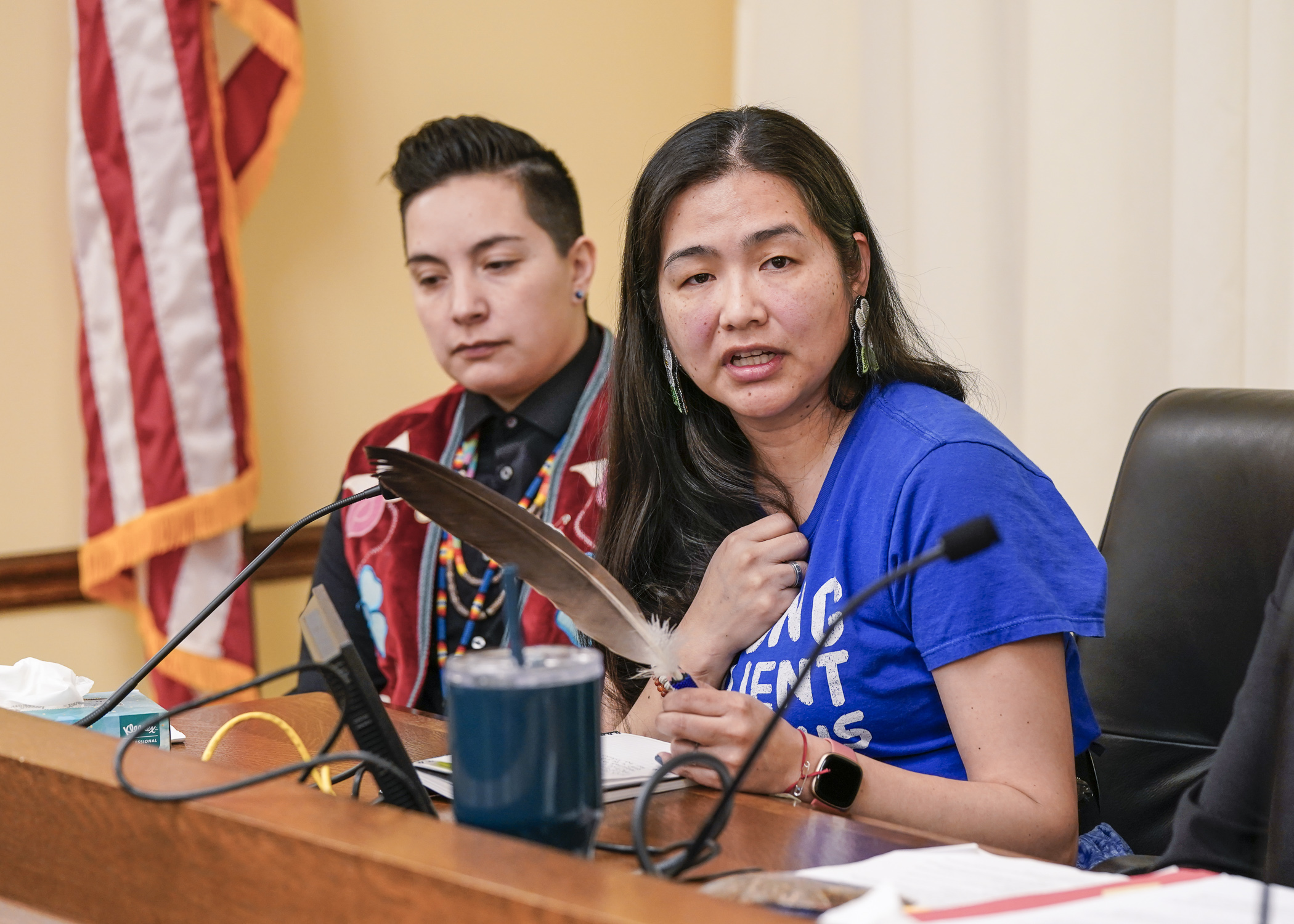Joint panel hears testimony on legislation to codify protections of Native American children

Picture someone coming to your house one day and saying, “You have three children, which one of them are you going to give up today, because they’re going to a boarding school until they’re 18 years old?”
Some of those kids never returned.
That example was shared Tuesday by Kevin R. Dupuis Sr., chairman of the Fond du Lac Band of Lake Superior Chippewa, one of 20 testifiers who spoke during an informational hearing of a bill meant to stop such stories from happening again.
Sponsored by Rep. Heather Keeler (DFL-Moorhead), HF1071 would codify provisions of the Indian Child Welfare Act in state law.
Heard at a joint hearing of the House Children and Families Finance and Policy and the House Judiciary Finance and Civil Law committees, the bill is currently in the jurisdiction of the former panel. Rep. Dave Pinto (DFL-St. Paul), chair of the children’s committee, said it would discuss the bill further and vote on it Thursday.
The federal government established the act in 1978 and the Minnesota Indian Family Preservation Act was enacted in 1985 to strengthen and expand parts of the federal law. However, a case currently before the U.S. Supreme Court (Brackeen v. Haaland) could result in the act being overturned.
“What this bill does is really just protect some of those components that we as Indigenous people really believe is good for our kids,” Keeler said. “… We have an opportunity to protect children who need somebody else to look out for them.”
Rep. Alicia Kozlowski (DFL-Duluth) gave some background on Native American children being separated from their families, a practice that took hold in 1800s as an attempt to “kill the Indian and save the child.”
Although it is not known how many kids were sent to live in “boarding schools,” there were at least 20,000 kids in such schools by 1900, a number that tripled over the next 25 years. The schools were later replaced by other programs. Kozlowski said a 2020 report found that American Indian children in Minnesota are 16% more likely to be placed out of home than white children.
“Many of these children have been lost to their families,” Kozlowski said. “… This bill will codify the Indian Child Welfare Act into state law and reinforce our state’s recognition of the stability, security and sovereignty of our tribal nations and communities in Minnesota.”
Melanie Benjamin, chief executive of the Mille Lacs Band of Ojibwe, said the act has helped tens of thousands of American Indian children find fairness and healing by establishing standards that include working to keep families together and helping kids retain their heritage.
“Many of the policies that were created in an attempt to assimilate American Indian people or families failed our caused great harm,” said Benjamin, whose family was relocated to Missouri in the 1950s.
“In the long run, this [bill] will help us preserve our way of life, our language and our culture,” she said.
Related Articles
Search Session Daily
Advanced Search OptionsPriority Dailies
Ways and Means Committee OKs House budget resolution
By Mike Cook Total net General Fund expenditures in the 2026-27 biennium will not exceed a hair less than $66.62 billion.
That is the budget resolution approved Tuesday by the House Ways...
Total net General Fund expenditures in the 2026-27 biennium will not exceed a hair less than $66.62 billion.
That is the budget resolution approved Tuesday by the House Ways...
Minnesota's budget outlook worsens in both near, long term
By Rob Hubbard It looks as if those calling for less state spending could get their wish, judging from Thursday’s release of the February 2025 Budget and Economic Forecast.
A state su...
It looks as if those calling for less state spending could get their wish, judging from Thursday’s release of the February 2025 Budget and Economic Forecast.
A state su...